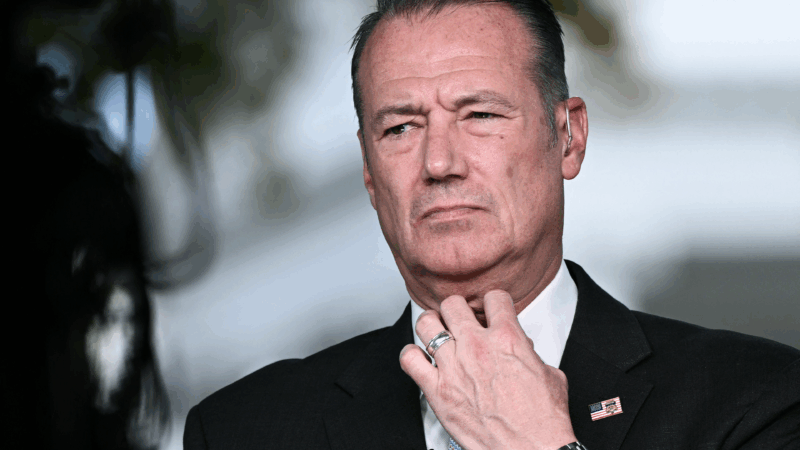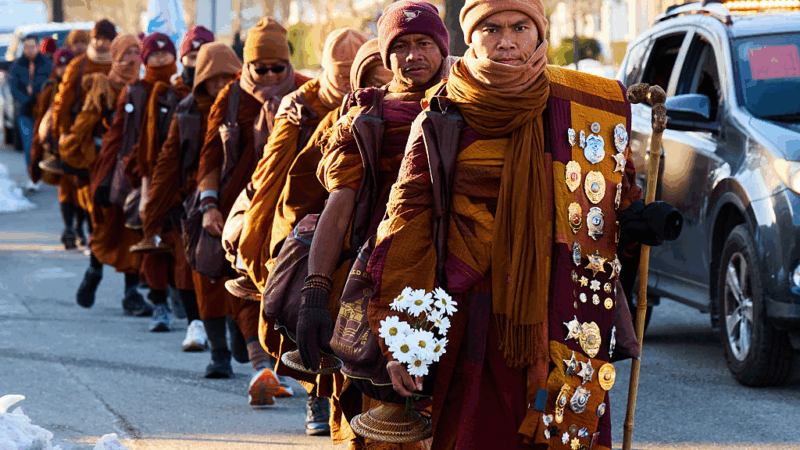New books this week: unconventional novels and an oral history of Hiroshima, Nagasaki
Eighty years ago this week, the world passed into a terrifying new age. In Hiroshima and Nagasaki, Japan, mushroom clouds announced that humans not only could slaughter each other in staggering numbers – but now also possessed the means to raze civilization as we know it.
Despite its defining nature, this dreadful event that led to the end of WWII can feel distant after eight decades. Hearing from the people who actually experienced it, though, can bring it closer. An oral history of the atomic bomb detonations — and the unthinkable human ruin they wrought — leads this week’s list of publishing highlights, which also include a handful of novels that defy convention.

The Devil Reached Toward the Sky: An Oral History of the Making and Unleashing of the Atomic Bomb, by Garrett M. Graff
“One of the unique powers, to me, of oral history is the way that it puts you back in the footsteps and experiences of the people who lived these events firsthand before they know the outcome,” Graff told NPR’s Weekend Edition on Saturday. The journalist and historian, who has previously produced oral histories of D-Day and the 9/11 attacks, here applies the same approach to still another human catastrophe: The development and detonation of atomic bombs over Japan by the U.S.

The Hounding, by Xenobe Purvis
The dread here is so heavy it’s impossible to shake, but that’s nothing compared to the suffocating weight of neighbors’ suspicions. Seated in the perspectives of the prying residents of a rural 18th century English village, Purvis’ debut novel trains its attentions on five unconventional sisters who — so the rumor goes — may be turning into dogs. A silly fancy, you may scoff, but never underestimate the danger of a neighbor resentful and afraid.

The Magician of Tiger Castle, by Louis Sachar
There may be some millennials who didn’t read Sachar’s books in school; there are probably also some who never did the Macarena or heard the Spice Girls. I just wouldn’t bank on it, is my point. His Wayside School series and Holes, winner of the National Book Award and Newbery Medal, were inescapable – and refreshingly weird – fixtures on reading lists for a generation of American students. Now that many of those readers have aged into mortgages and kids of their own, it’s fitting that the kids’ lit legend is now publishing a novel intended for adults: a fantasy of sorcery and star-crossed love that remains just a bit off-kilter.

Manga: A New History of Japanese Comics, by Eike Exner
As a part-time librarian with some experience in the teen section, I have seen it firsthand: Manga is a legit phenomenon. Any list of the most popular titles among the youths is bound to be crowded with series such as One Piece, Bleach and Attack on Titan, among others. So if, like mine, your default definition of “comics” is DC or Marvel, it wouldn’t hurt to crack open Exner’s look at Japan’s eye-catching style of graphic storytelling. Academic in tone, comprehensive in scope, this history traces the development of the artform from its late 19th century origins to its ubiquitous popularity today.

People Like Us, by Jason Mott
Mott won the 2021 National Book Award for his previous novel, Hell of a Book, a mind-bending metanarrative that’s funny, frightening and altogether impossible to pin down. Don’t call People Like Us a sequel, exactly; in fact, don’t call it anything and expect the label to stick. But readers of both novels will find plenty in common, including some shared characters and themes — again he centers a Mott-like writer on book tour, for instance — in this similarly sly, slippery dance between the surreal and the all-too-real paradoxes of living Black in America.

Songs for Other People’s Weddings, by David Levithan with songs by Jens Lekman
Is it a novel with an official soundtrack? Or an album with the most elaborate liner notes you’ve ever seen? Trust Lekman, a singer-songwriter known for idiosyncratic storytelling, to be involved with such an unusual project. He and Levithan collaborated on this novel and a companion concept album (due out next month) about a wedding singer resembling the Swedish bard, who has experience in the gig himself. The project came about when he began writing fictional wedding songs about fictional couples and sending them to his friend Levithan — who also happens to be an accomplished author primarily of young-adult novels — and Levithan crafted this book inspired and seamed by the lyrics.
How the use of AI and ‘deepfakes’ play a role in the search for Nancy Guthrie
As artificial intelligence becomes more advanced and commonplace, it can be difficult to know what's real and what's not, which has complicated the search for Nancy Guthrie, according to law enforcement. But just how difficult is it?
Immigration officials to testify before House as DHS funding deadline approaches
Congressional Democrats have a list of demands to reform Immigration and Customs Enforcement. But tensions between the two parties are high and the timeline is short – the stopgap bill funding DHS runs out Friday.
Hospitals are posting prices for patients. It’s mostly industry using the data
The Trump administration pushed for price transparency in health care. But instead of patients shopping for services, it's mostly health systems and insurers using the information for negotiations.
Buddhist monks head to DC to finish a ‘Walk for Peace’ that captivated millions
The group of Buddhist monks is set to reach Washington, D.C., on foot Tuesday. The monks in their saffron robes have become fixtures on social media, along with their rescue dog Aloka.
Trump is threatening to block a new bridge between Detroit and Canada from opening
President Donald Trump on Monday threatened to block the opening of a new Canadian-built bridge across the Detroit River, in his latest salvo over cross-border trade issues.
Ghislaine Maxwell appeals for clemency from Trump as she declines to answer questions
Maxwell declined to answer questions from House lawmakers on Monday, but indicated that if President Trump ended her sentence, she was willing to testify that neither he nor former President Clinton had done anything wrong in their connections with Epstein.







